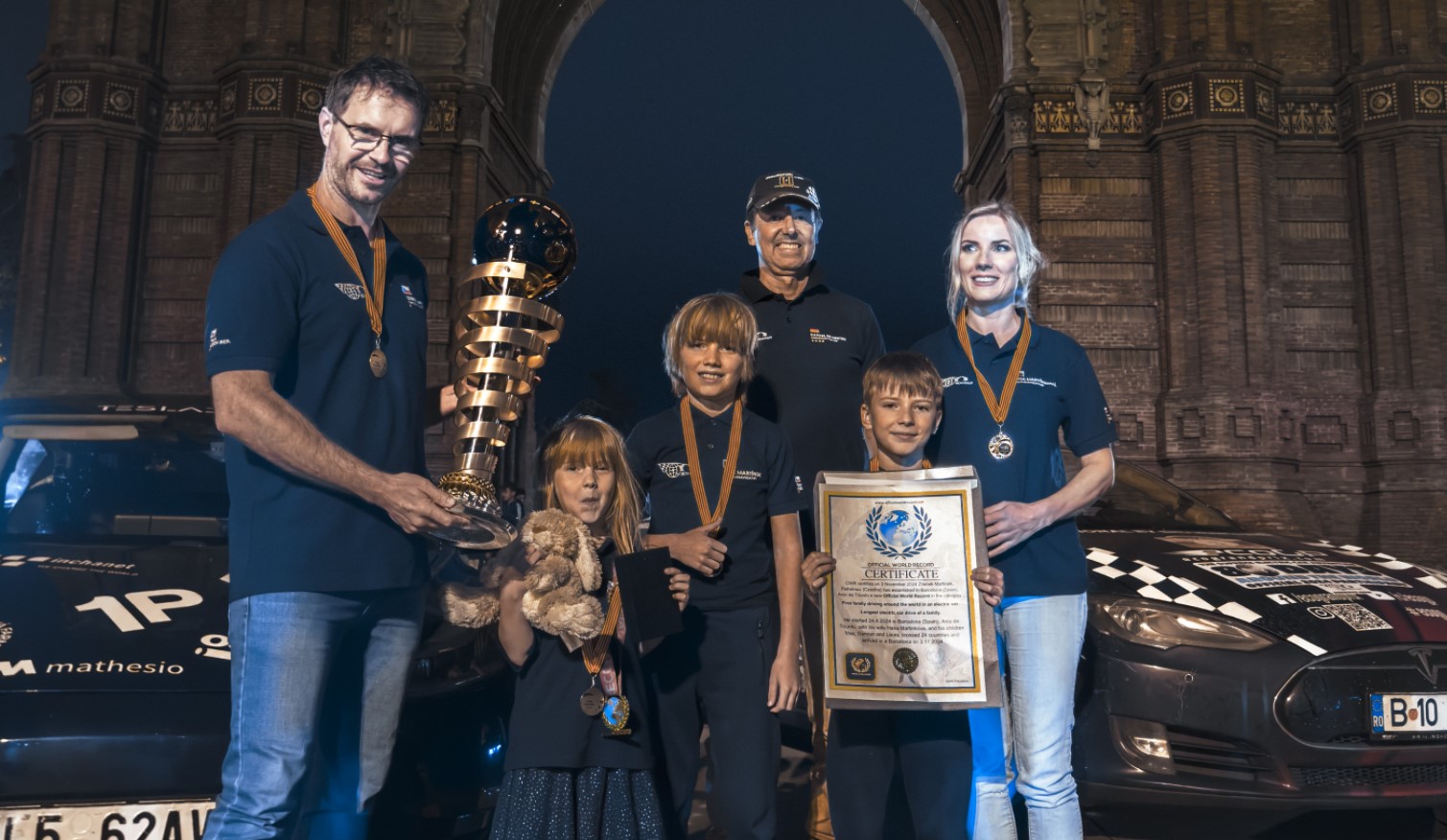
After just over six months on the road, two Teslas have driven around the world powered by electricity – including an entire family, with 3 young children, in a Tesla Model 3. But for one of the drivers it’s nothing new, as this was actually his fourth round-the-world trip in an EV – the first being way back in 2012.
80edays is the brainchild of Rafael de Mestre, the aforementioned owner who just finished his fourth round-the-world journey in an EV.
It started in 2012, when he heard about a pair of engineers navigating around the world in a Citroen C-Zero, a rebadged Mitsubishi i-MiEV, one of the early EVs of the modern era. de Mestre, however, owned a Tesla Roadster, the car that jump-started the modern EV moment, and thought there’s no way he was going to let a Citroen be the first around the world.
So, off he set in a self-declared “race” against the other team, wanting to beat them and be the first. After plenty of trials and drama, in a time when there were scarce public charging locations to be found even in advanced nations, and before Supercharging existed, de Mestre ended up winning the race and becoming the first to complete an electric circumnavigation of the globe. You can still find his driving and charging route here.
Despite the lack of infrastructure for his first race, and still-lacking infrastructure in many parts of the globe since, de Mestre likes to say “wherever there is light burning, you can find a charge” – and he carries a comically-crowded trunk full of custom charge adapters to make sure he can do this anywhere around the globe.
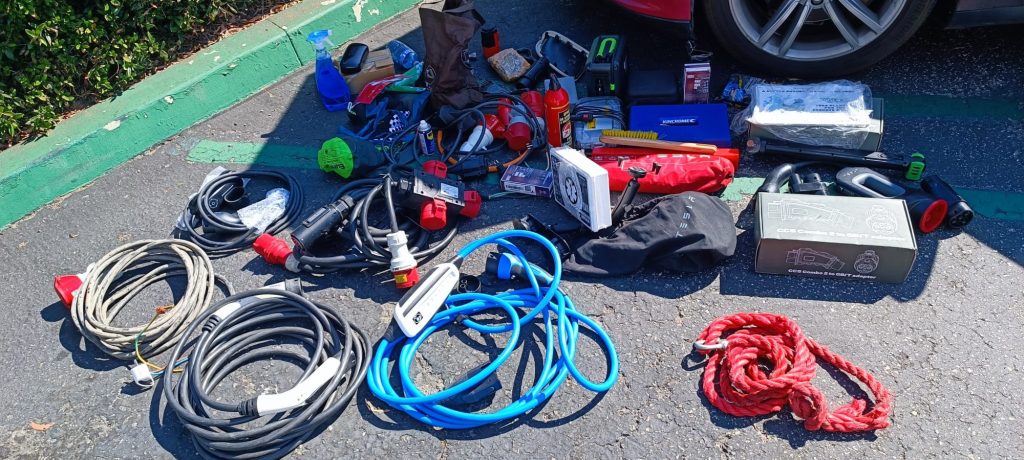
Since then, de Mestre has achieved the feat multiple times, often recruiting teams to go with him. In 2016, the trip included 9 Teslas, 1 Denza (a BYD/Daimler joint brand) and a Hungarian-made electric bus – though de Mestre drove a much more comfortable Tesla Model S that time, rather than his tiny Roadster.

In 2022, he set off again in his Roadster, and we caught up with him as he passed through California. This journey was notable for including what de Mestre believes is the first zero-emission transatlantic trip by car, as he shipped the Roadster in the cargo hold of a wind-powered cargo ship, which barely fit due to the car’s exceptionally small size.
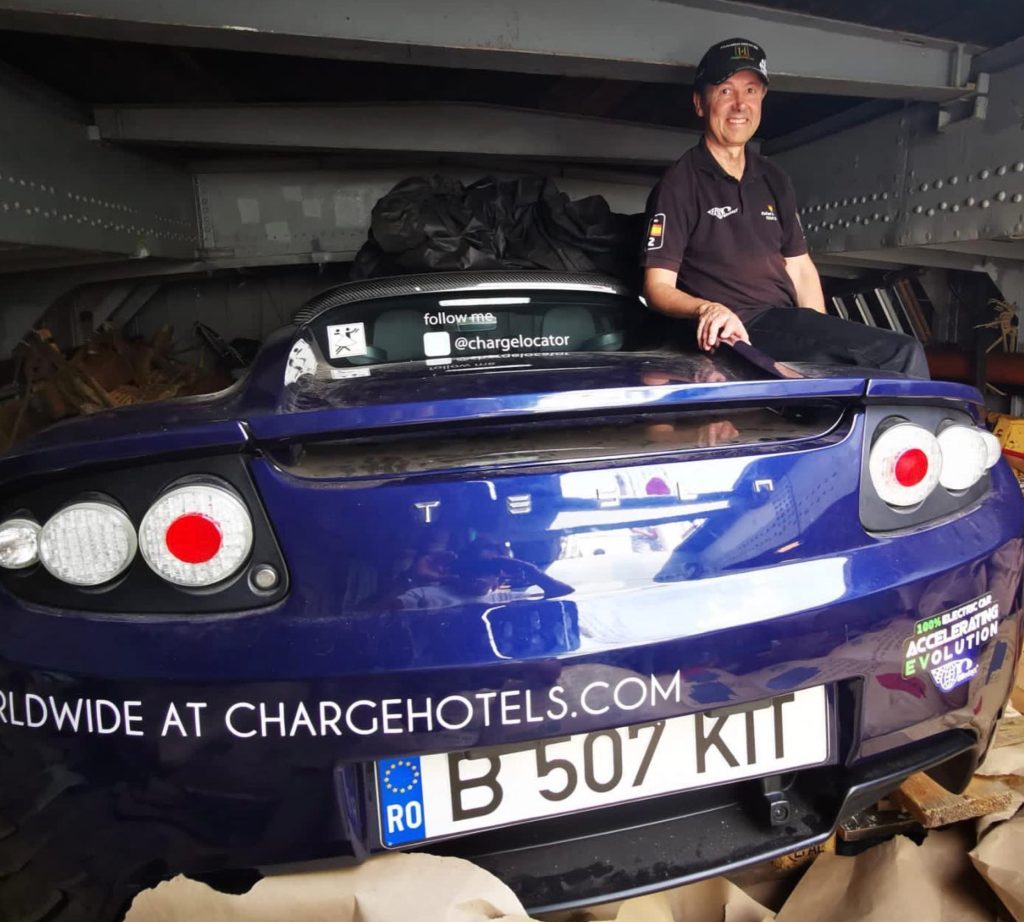
And in 2024, he and a Czech family – Zdenek, Hanna, Max (11), Damian (8) and Laura (6) Martinek – took their Model S and Model 3, respectively, around the world. They started on April 24 of this year, and finished on November 3 under the Arc de Triomf in Barcelona – where de Mestre, who was born in Catalunya, has always started and ended his trips.
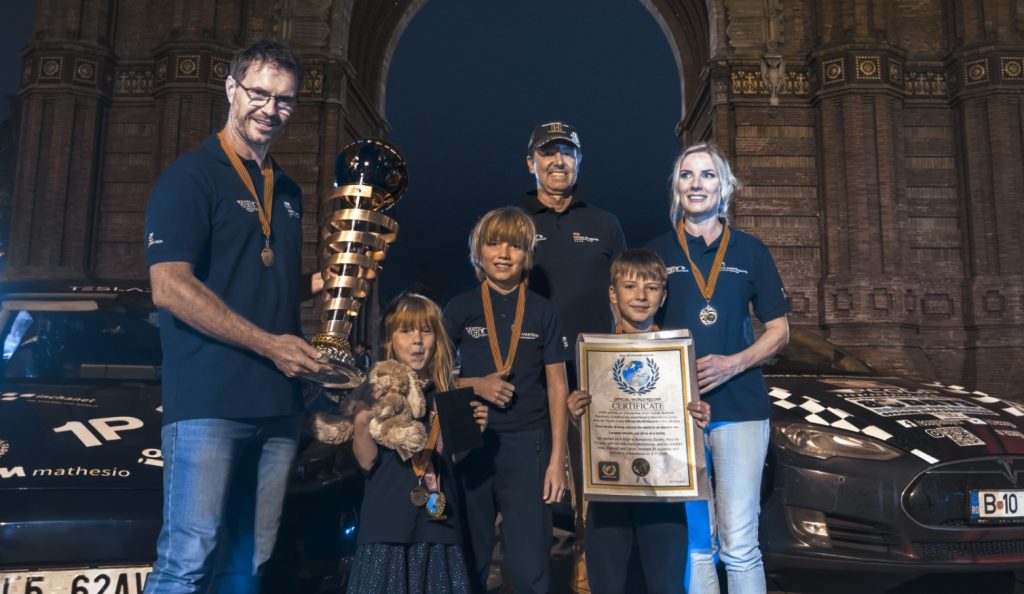
They were joined at times by other drivers who took on parts of the route, like a Kia Niro which joined to Morocco, but these two cars were the only finishers of the entire circumnavigation.
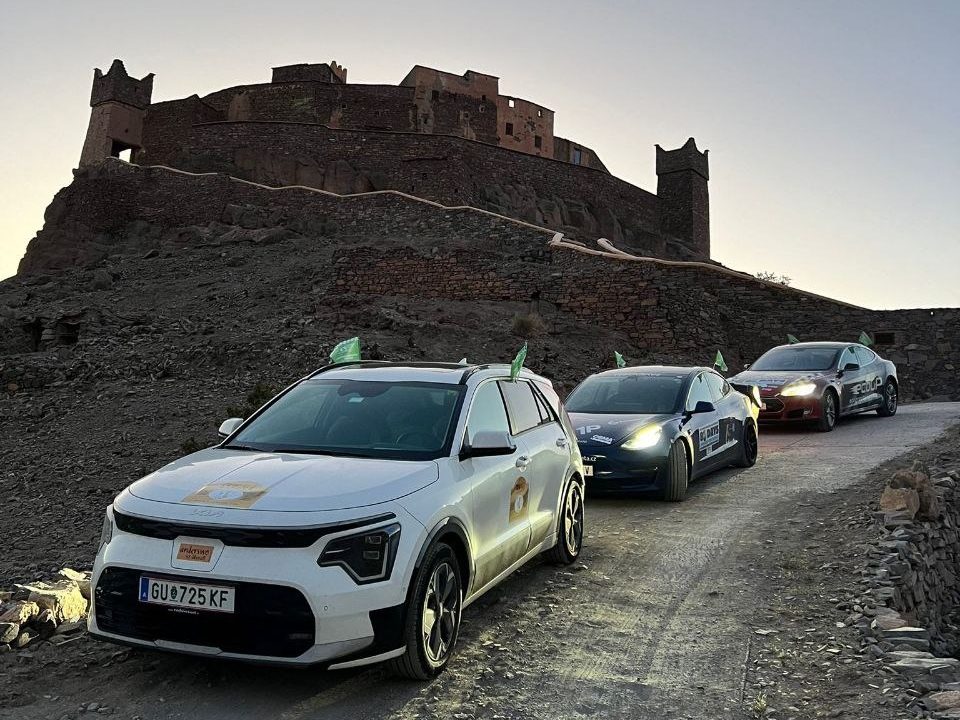
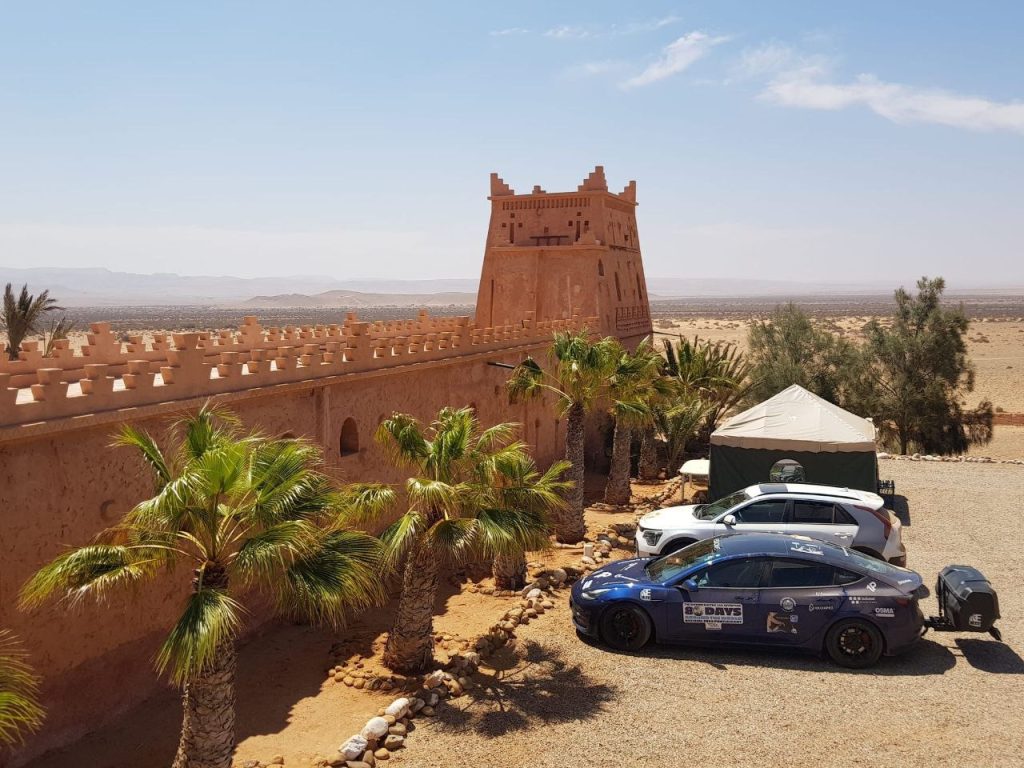
The most significant achievement of this trip was the inclusion of an entire family of five this time, all within a single Tesla Model 3. In 2016 a father and his adult daughter finished the trip, but there hadn’t been any full families or children on previous instances of 80edays until now. The trip set an Official World Record for first round-the-world trip in an electric car by a family, and longest trip in an electric car in a family.
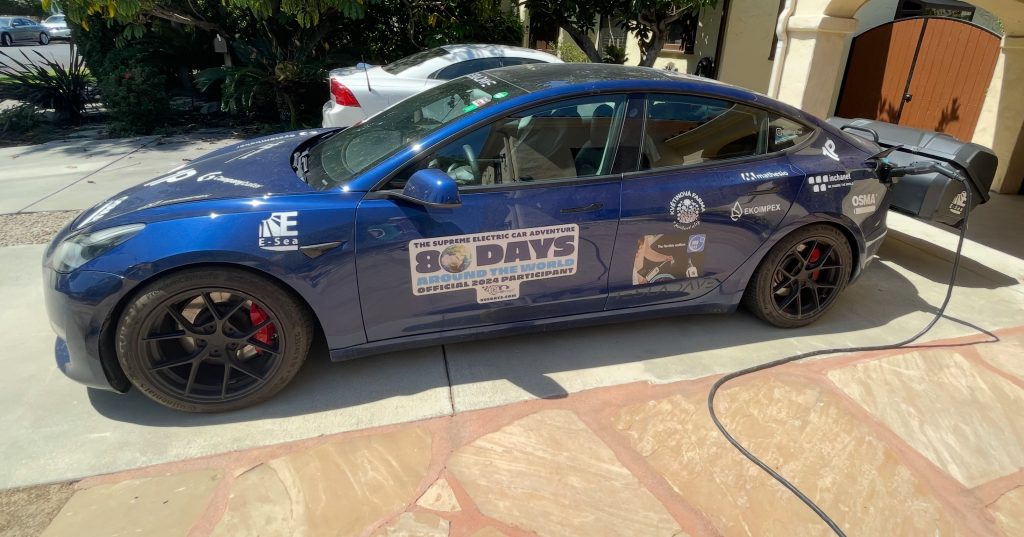
Now, the Model 3 is a fine-sized car, with plenty of room for five passengers and impressive cargo space for a mid-size sedan… but then add all of their stuff, and send them around the world, and it’s quite impressive that that was all possible in a single normal-sized car. The car used an additional cargo box attached to the tow hitch, but this was lost due to border difficulties in China, so the family had to manage with just the car’s default cargo space (so much for the Americans who think their chihuahua needs an entire third row for itself…)
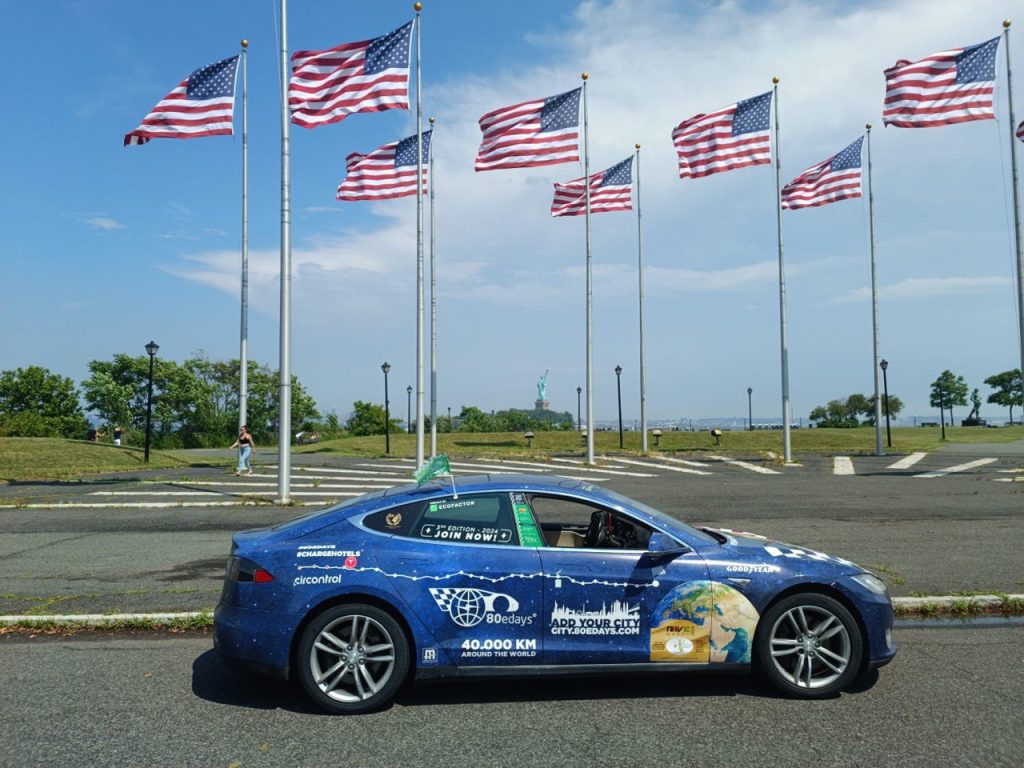

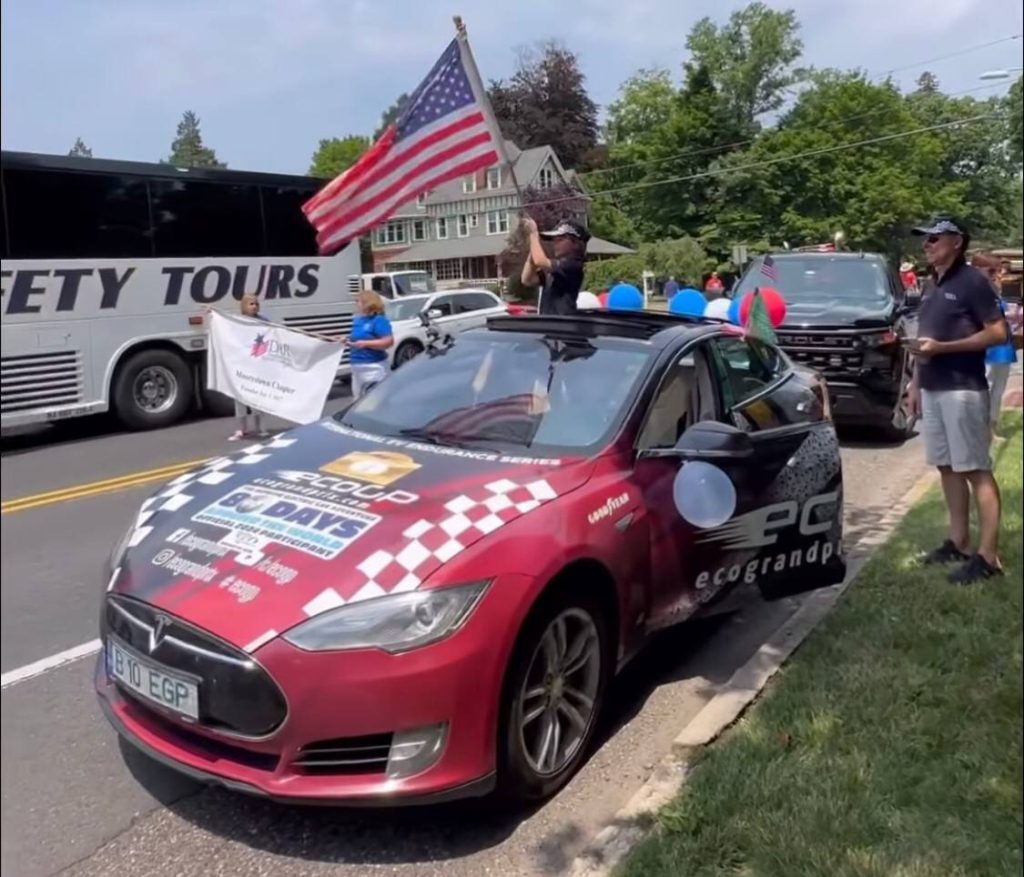
de Mestre also set a record for longest-driven trip in an electric car, at 42,015km, crossing 36 countries along the way. And each of his EVs have now done two trips around the world, seemingly the only two EVs to have done not just one, but multiple circumnavigations. The latter of which, the Model S, started the trip with over 600,000km (372k miles) on the odometer.
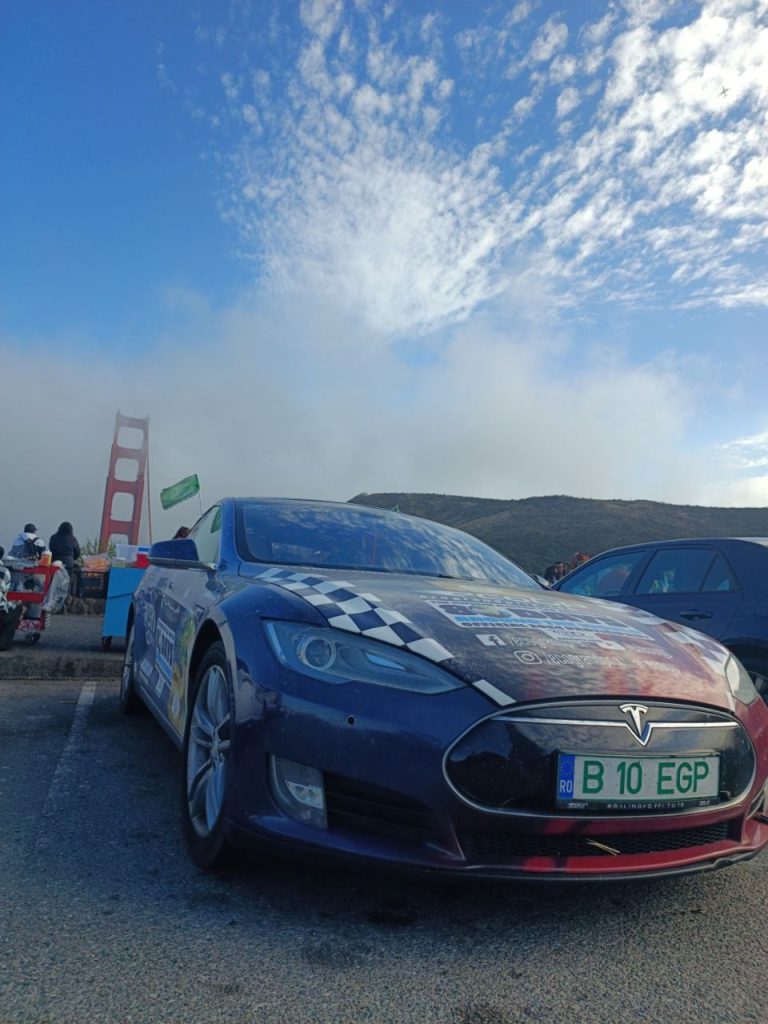
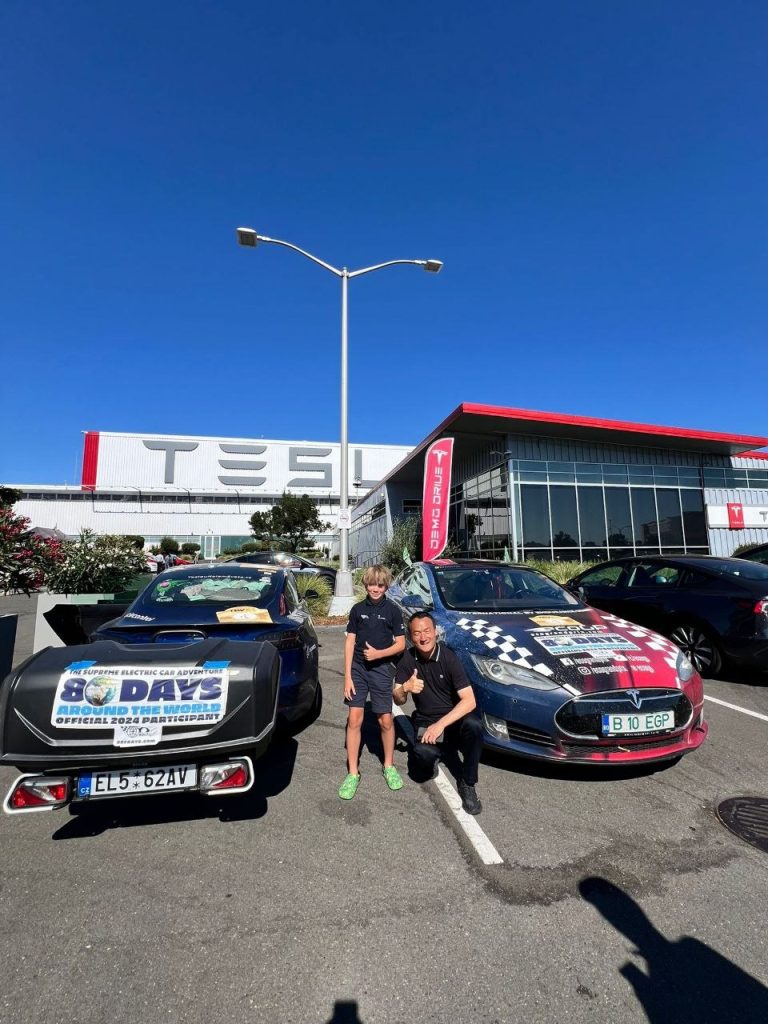
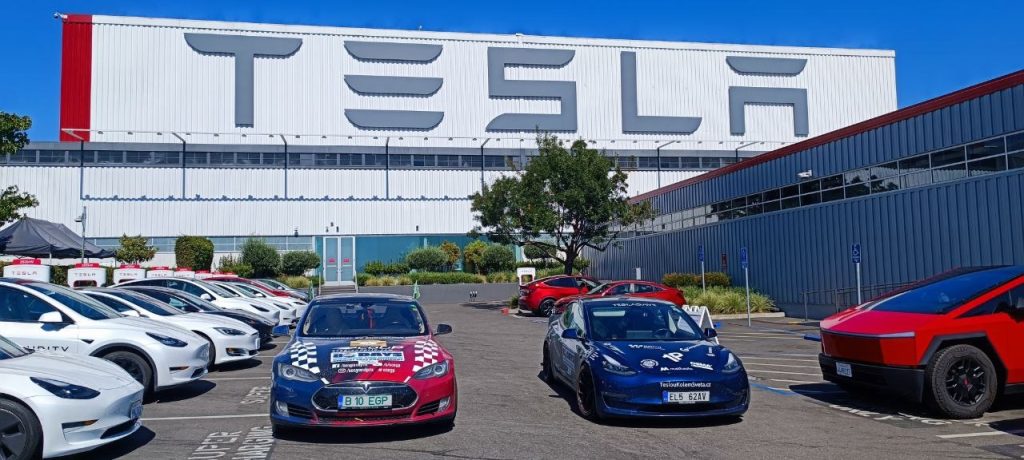
Along the way, the group met with local Tesla clubs in many areas, and with friends around the world from previous trips de Mestre has taken. They also gave presentations about EV driving in some places that are a little more off the beaten path, particularly central Asia.
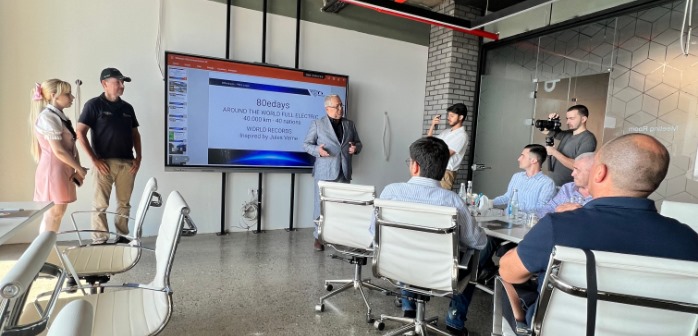
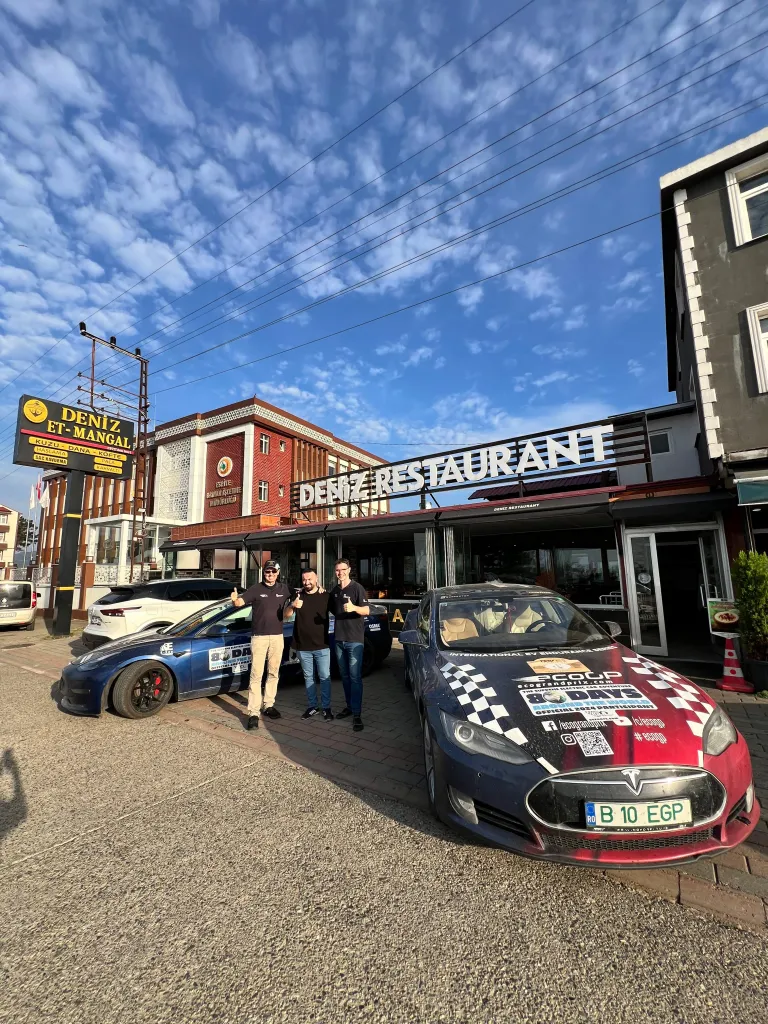
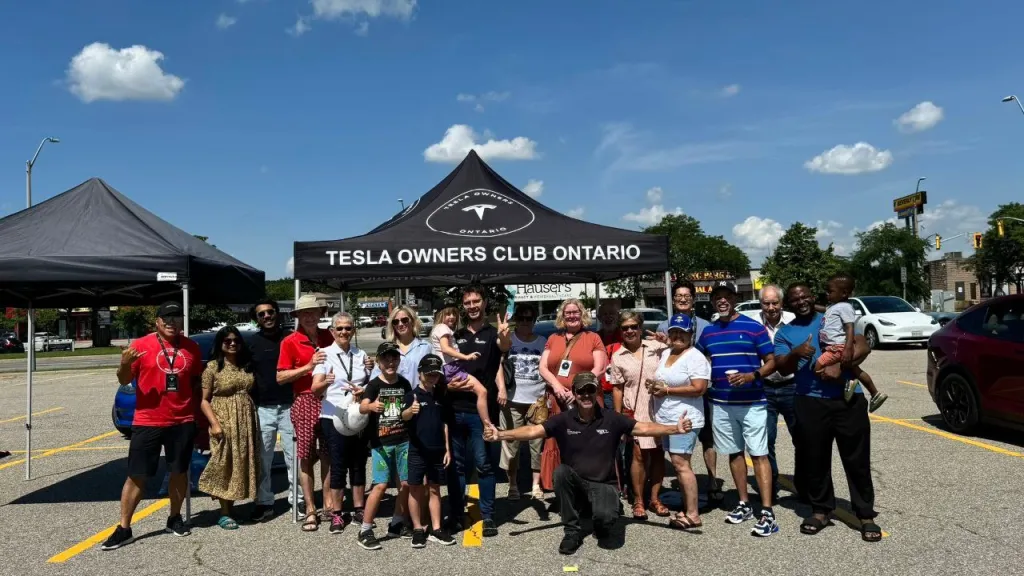
On this trip, we also caught up with the crew briefly for lunch when they passed through Los Angeles and gave them a quick ride in a Waymo, which was everyone’s first time in a truly driverless vehicle and inspired some fun reactions from the kids. (Read more about a tougher test we gave Waymo on a chaotic Venice Beach weekend here)
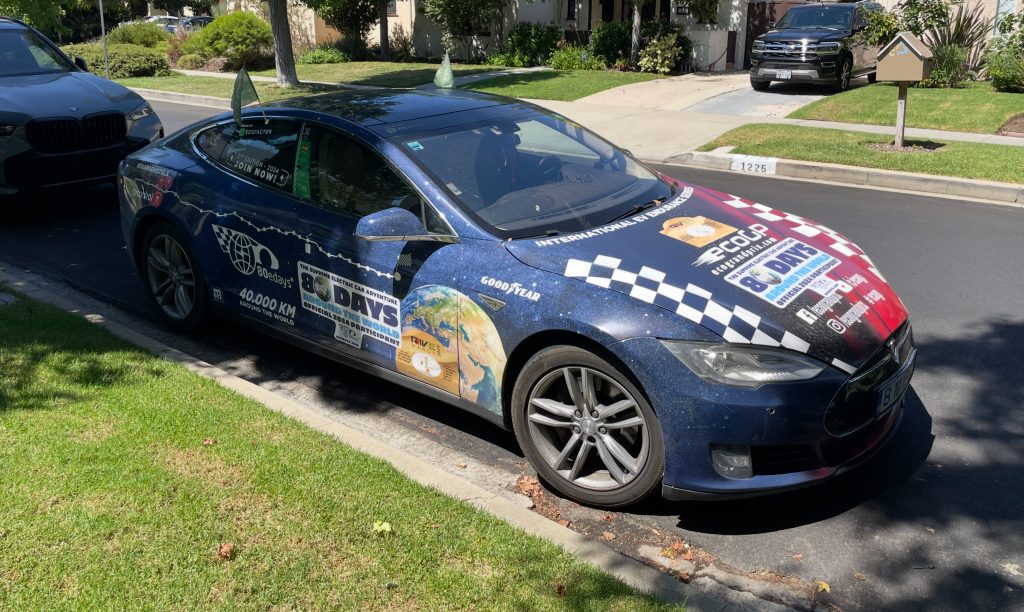
The group was in good spirits at the time, but was about to hit the lowest point of the trip – significant difficulties with both shipping and customs getting the cars to China. Due to customs, they had to give up a lot of their luggage, including the Model 3’s external cargo holder. One of de Mestre’s repeated goals with this project is to create a more open world, with fewer borders, and freer movement and more cooperation across them, after experiencing so much frustration during his various trips.
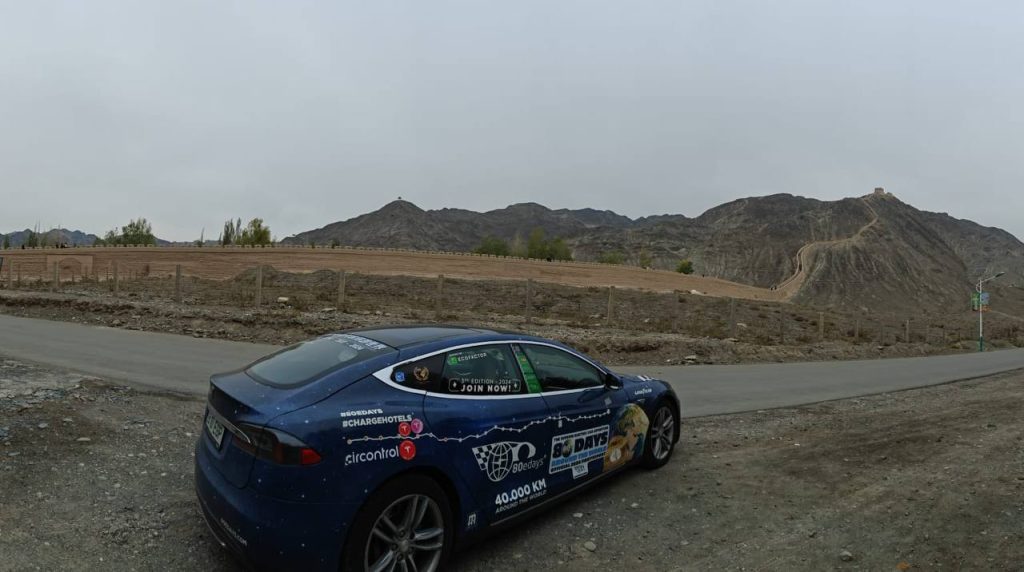
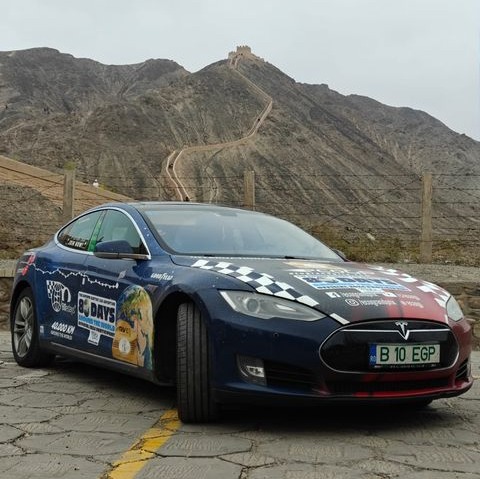
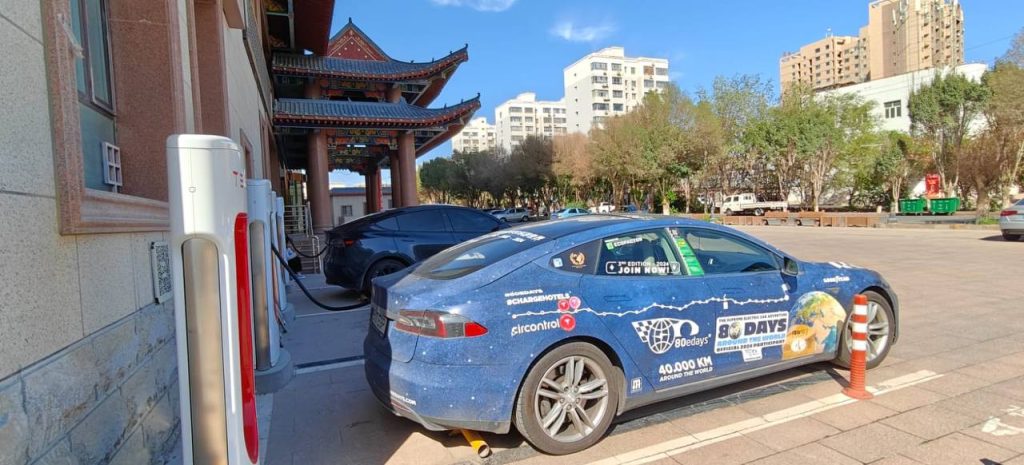

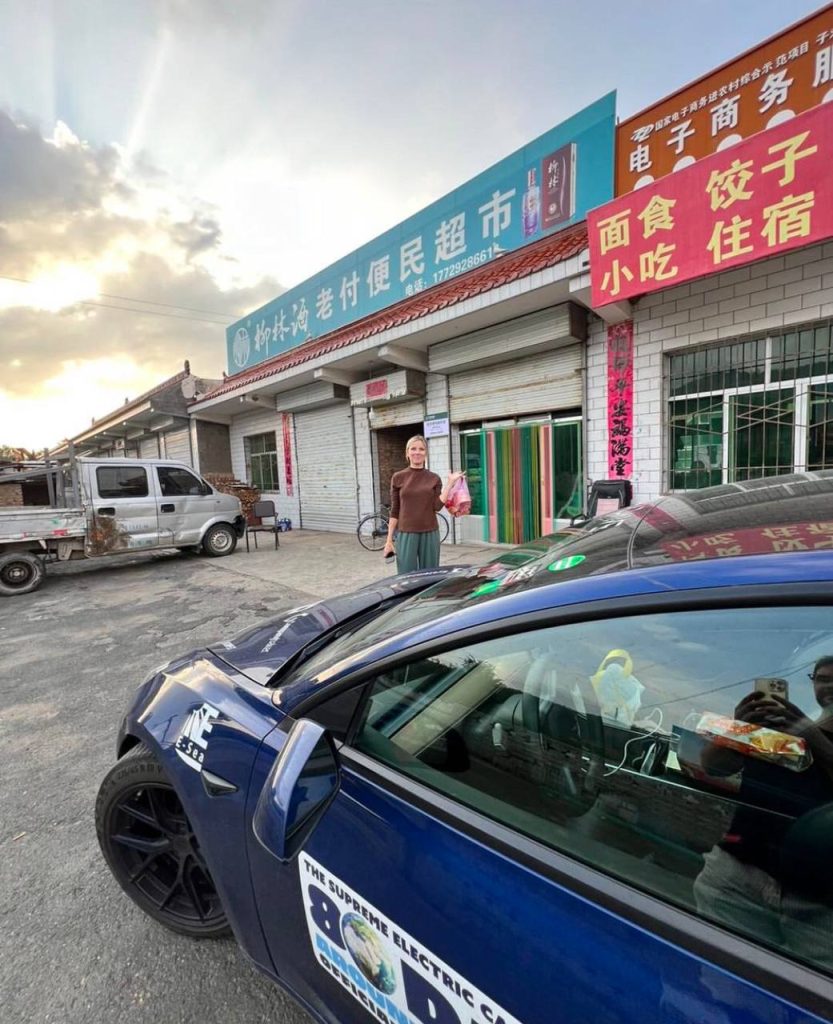
Between these troubles and the international nature of climate change, de Mestre has largely decided that borders are a roadblock to solving many of the world’s problems. When two countries are polluting across borders, rather than working together to solve the problem, what will often happen is that each one blames the other and does nothing to improve the situation – all the while, the global problem continues, and everyone is worse off for it. Cooperation is the answer, not isolation.
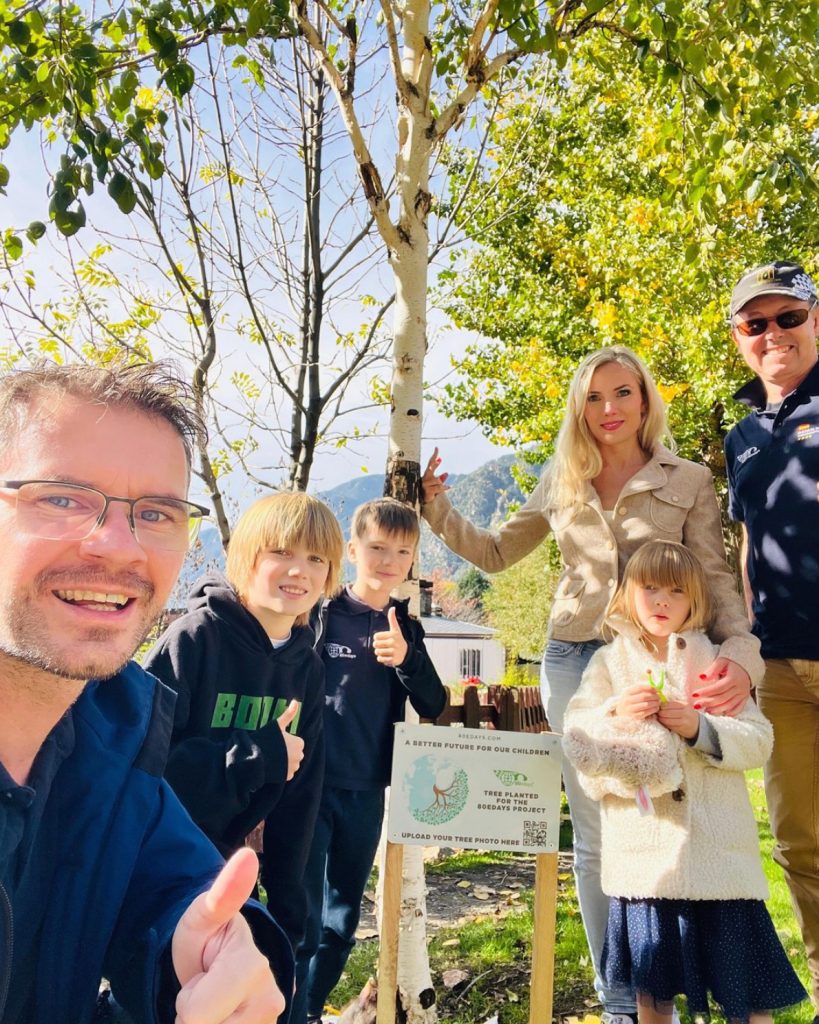
And speaking of climate change: on the same day the group finished their trip in Barcelona, the city felt the devastating effects of climate-affected storms which have been hammering Spain’s eastern coast recently, and came to Barcelona yesterday with floods that have disrupted transportation and have killed hundreds in the region over the past week. Not only were these storms made more common by climate change, but their intensity was increased, with more precipitation which overloads infrastructure that was built for a more normal climate, which we as humans are rapidly moving away from due to the combustion of fossil fuels.
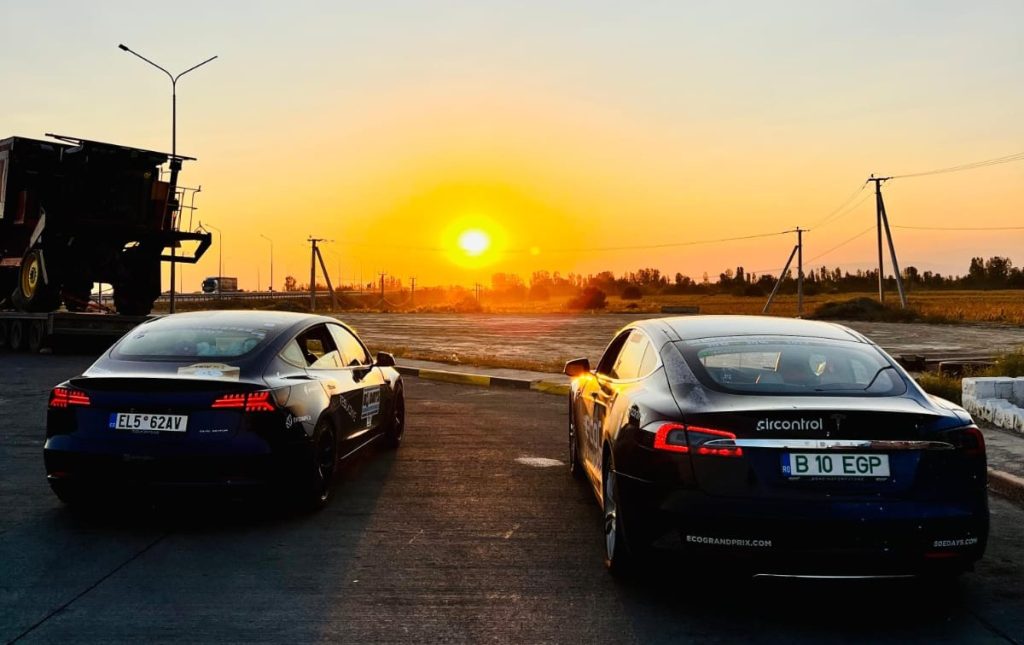
Which puts a point on this whole exercise: despite that this is obviously a silly, fun thing to do, it’s still making some important symbolic points. We have cleaner transportation options available to us today, and we are only making them harder to implement by putting up borders and reducing cooperation between nations. de Mestre and the Martineks have shown us all, once again, that there are better options available to us – we need only start taking them.
And finally, I’ll ask the same question I’ve been asking since 2012, with more and more evidence building every day: Who says you can’t roadtrip in an EV?
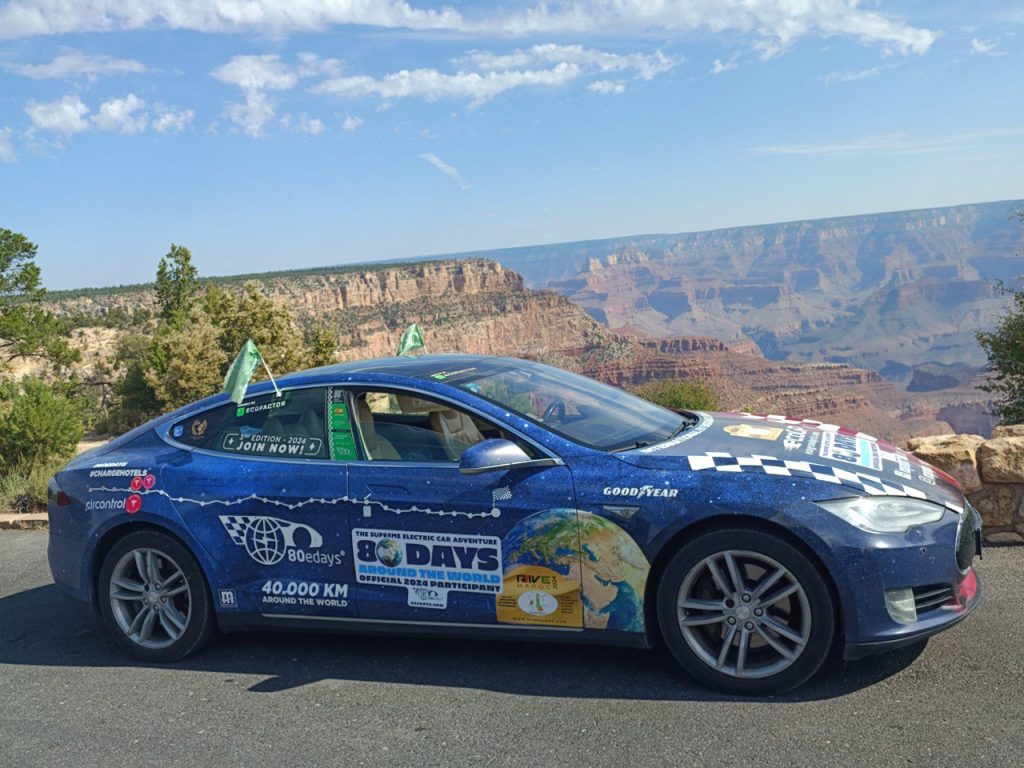
You can learn more about the trip and see pics & vids on instagram at @80edays_official, find Zdenek and his family at @tesloukolemsveta (mostly in Czech language), or support the project (which had significant cost overruns due to border processing issues) through Rafael’s Patreon. There’s a writeup of the trip here, and more info on 80edays’ website.
Charge your electric vehicle at home using rooftop solar panels. Find a reliable and competitively priced solar installer near you on EnergySage, for free. They have pre-vetted installers competing for your business, ensuring high-quality solutions and 20-30% savings. It’s free, with no sales calls until you choose an installer. Compare personalized solar quotes online and receive guidance from unbiased Energy Advisers. Get started here. – ad*
FTC: We use income earning auto affiliate links. More.